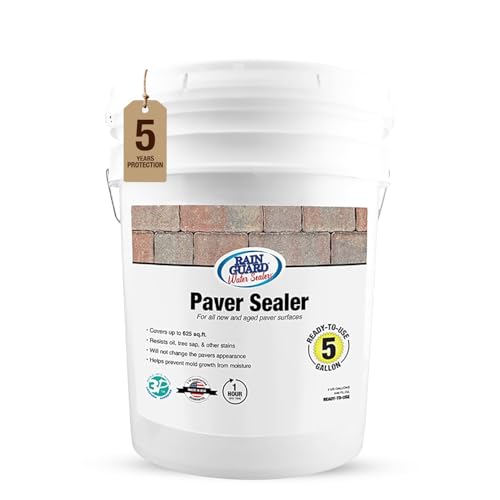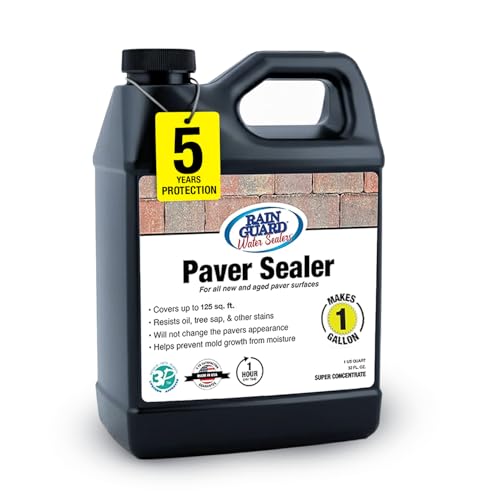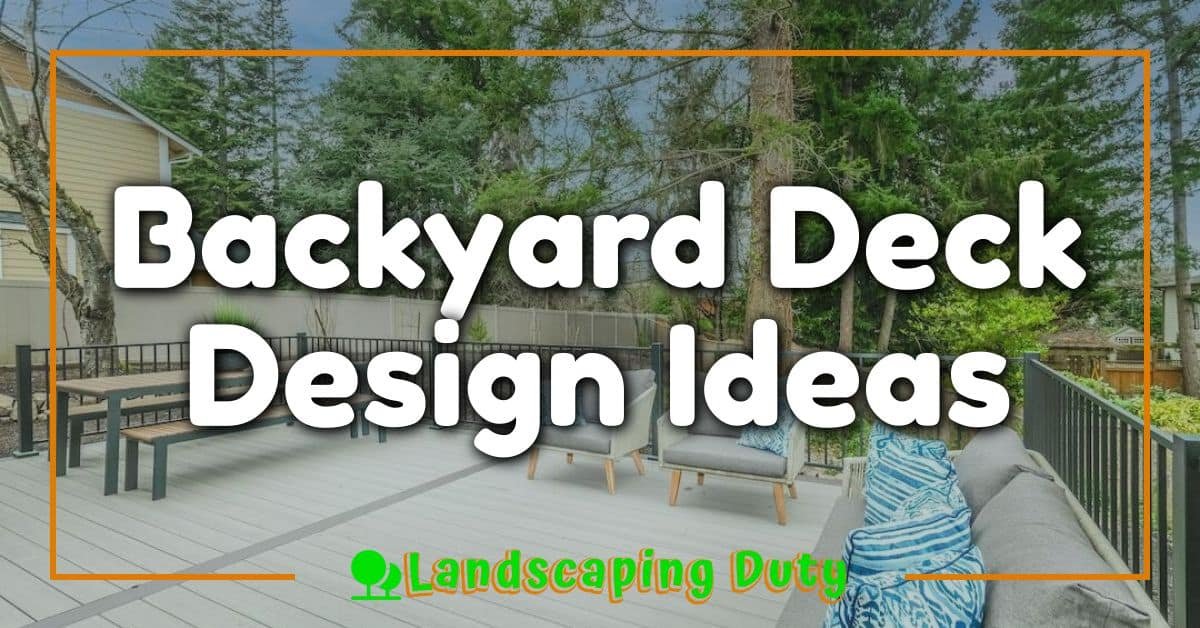If you’re considering enhancing the look and durability of your outdoor space, sealing your pavers could be a game-changer. Many of us love the aesthetic appeal of pavers, but keeping them in top condition requires some maintenance. In this article, we’ll explore the cost factors involved in sealing pavers, helping you make an informed decision for your next project.

Sealing pavers not only revitalizes their appearance but also protects them from wear and tear, ensuring a longer lifespan for your outdoor surfaces. Our guide will break down the average costs associated with sealing pavers, including materials, labor, and any additional expenses you might encounter. Whether you’re a seasoned homeowner or a first-time paver owner, understanding the investment required for sealing pavers is crucial for proper upkeep.
Understanding Paver Sealing
As landscape designers, we understand the importance of preserving the integrity and beauty of outdoor spaces. When it comes to pavers, sealing them is a crucial step in ensuring their longevity and enhancing their aesthetics. Let’s delve into the reasons why sealing pavers is essential and how it impacts their lifespan.
Why Seal Pavers?
Sealing pavers offers a range of benefits that are worth considering for any outdoor space. Firstly, it provides protection against oil, dirt, and other stains, making maintenance easier and ensuring that your pavers retain their appearance for longer periods. Additionally, sealed pavers are more resistant to wear and fading caused by exposure to the elements, including sunlight, rain, and snow. By sealing your pavers, you not only enhance their color and texture but also create a barrier that prevents weeds and moss from growing between the joints, maintaining a clean and polished look.
The Lifespan of Sealed Pavers
Sealed pavers are known to have a significantly extended lifespan compared to unsealed ones. The sealant acts as a shield, offering protection against discoloration, cracking, and erosion, thereby prolonging the overall durability of the pavers. With proper maintenance and regular resealing, sealed pavers can last for many years, maintaining their structural integrity and appeal. Investing in sealing your pavers is a cost-effective way to ensure that your outdoor surfaces remain vibrant and intact for a long time, adding value to your property and enhancing the overall aesthetics of your outdoor landscape.
Factors Affecting Paver Sealing Cost
As landscape designers, we understand the various factors that influence the cost of sealing pavers. Considering these factors is crucial in determining the overall investment required to upkeep your outdoor spaces effectively.
Type of Pavers
The type of pavers used significantly impacts the cost of sealing. Different materials such as concrete, brick, or natural stone pavers have varying levels of porosity. More porous pavers may require additional coats of sealant, leading to higher costs compared to denser pavers.
Area Size and Complexity
The size and complexity of the paved area play a key role in estimating the sealing cost. Larger areas naturally require more sealant, labor, and time to complete the sealing process. Moreover, intricate patterns or designs on the pavers can increase the complexity of the job, potentially raising the overall cost.
Existing Paver Condition
The condition of the existing pavers is another factor affecting the sealing cost. If the pavers are old, damaged, or stained, they may require pre-sealing preparation such as cleaning, repairs, or stain removal. Additional preparatory work can add to the total cost of paver sealing.
Sealant Quality and Brand
The quality and brand of the sealant used have a direct impact on the cost of paver sealing. High-quality sealants with enhanced durability and longevity may come at a higher price point but offer superior protection and longevity for your pavers. Different brands may also vary in pricing, so selecting the right sealant for your specific needs is essential in determining the overall cost.
Cost Breakdown of Paver Sealing
As landscape designers, we understand the significance of maintaining outdoor spaces with sealed pavers. Properly sealed pavers not only enhance the aesthetics of a space but also prolong their lifespan by protecting them from stains, wear, and fading. It is essential to consider the cost breakdown of paver sealing to make informed decisions about preserving the beauty and functionality of outdoor areas.
Materials Cost
When estimating the cost of paver sealing, one of the primary factors to consider is the materials required for the project. The cost of sealant varies depending on the quality and brand selected for the job. High-quality sealants may come at a higher price point but offer better protection and longevity. Additionally, the size and type of pavers used in the outdoor space determine the amount of sealant needed, impacting the overall materials cost. Calculating the materials cost accurately is crucial for budgeting and ensuring the durability of the paver sealing project.
Labor Costs
Apart from materials, labor costs play a significant role in the overall expense of sealing pavers. Hiring professionals for paver sealing ensures a high-quality finish and proper application of the sealant. The labor costs associated with paver sealing can vary based on factors such as the size and complexity of the area, the condition of the existing pavers, and the intricacy of the sealing process. Properly allocating budget for labor costs is essential for achieving optimal results and maximizing the benefits of paver sealing.
As landscape designers, we emphasize the importance of considering both materials and labor costs when planning for paver sealing projects. By understanding the cost breakdown of paver sealing, we can help our clients make informed decisions that align with their budget and maintenance goals. Effective paver sealing not only enhances the visual appeal of outdoor spaces but also contributes to their longevity and durability, making it a valuable investment for property owners.
DIY vs Professional Sealing Services
As landscape designers, we often weigh the options of do-it-yourself (DIY) paver sealing against hiring professional services to ensure the longevity and visual appeal of outdoor spaces.
Pros and Cons of DIY Paver Sealing
When it comes to sealing pavers on your own, the primary advantage is cost-effectiveness. DIY projects can save money initially as you eliminate labor expenses. Additionally, the flexibility of scheduling the sealing at your convenience is a significant benefit for many homeowners.
However, there are drawbacks to DIY paver sealing. It requires time and effort to research and acquire the necessary materials and equipment. Incorrect application of sealant can lead to inefficacy or uneven coverage, compromising the overall protection of the pavers. Moreover, improper sealing might result in the need for costly repairs or resealing sooner than expected.
When to Hire a Professional
Opting for professional sealing services can provide expert knowledge and experience in maintaining and enhancing your outdoor spaces. Professionals have access to high-quality sealants and equipment, ensuring thorough and precise application. Their expertise helps in selecting the right sealant for specific paver types and sizes, guaranteeing optimal protection and longevity.
We recommend hiring professionals for complex sealing projects or large areas where meticulous attention to detail is crucial. Professional services offer convenience and peace of mind, eliminating the need for homeowners to invest time in researching, purchasing, and applying sealants.
« Master the Art of Paver Calculation: Transform Your Outdoor Space with this Proven Square Meter Formula Discover the Ultimate Paver Sealing Schedule for Stunning Outdoor Spaces »
Ultimately, whether to choose DIY or professional paver sealing depends on the scale of the project, budget constraints, and the desired level of quality and durability. Evaluating these factors will help in making an informed decision that aligns with your maintenance goals and enhances the beauty of your outdoor spaces.
Additional Costs to Consider
As landscape designers, we understand that when planning to seal pavers, there are additional costs beyond the basic sealing expenses to factor into your budget. These costs play a crucial role in ensuring the longevity and aesthetics of your outdoor space. Let’s delve into the essential additional costs to consider when sealing pavers:
Cleaning and Repair Costs
When sealing pavers, it’s essential to prepare the surface properly before applying the sealant. Cleaning the pavers thoroughly to remove dirt, stains, and debris is a crucial step in the sealing process. Depending on the condition of the pavers, you may need specialized cleaning solutions or equipment, which can incur additional costs.
Moreover, it’s important to inspect the pavers for any damage or wear that requires repair before sealing. Repairing cracks, chips, or uneven surfaces ensures a smooth and uniform application of the sealant. These repair costs should be factored into your overall budget to maintain the structural integrity of the pavers and enhance the effectiveness of the sealing process.
Maintenance and Reapplication
Beyond the initial sealing costs, ongoing maintenance and reapplication expenses are vital considerations for preserving the pavers’ durability and appearance. Regular maintenance, such as cleaning and resealing, is necessary to protect the pavers from wear and weather damage over time.
Depending on the type of sealant used and the amount of foot traffic or exposure to elements, resealing may be required every few years to maintain optimal protection. Factor in the costs of routine maintenance and periodic reapplication when budgeting for paver sealing to ensure long-term benefits and aesthetics.
By accounting for cleaning and repair costs, as well as maintenance and reapplication expenses, you can create a comprehensive budget for sealing pavers that aligns with your long-term maintenance goals and enhances the beauty of your outdoor space.
Tips for Saving Money on Paver Sealing
Choosing the Right Time to Seal
As landscape designers, we recommend scheduling paver sealing during moderate weather conditions. It’s best to avoid extreme temperatures, such as very hot days or rainy seasons, as they can affect the quality of the sealant application. By sealing your pavers during optimal weather, you can ensure proper adhesion and longevity of the sealant, reducing the need for frequent resealing and saving on maintenance costs in the long run.
Comparing Quotes and Services
When it comes to saving money on paver sealing, we suggest obtaining multiple quotes from reputable contractors or suppliers. By comparing quotes and services offered, you can find a balance between cost-effectiveness and quality work. Look for professionals who provide transparent pricing, offer warranties on their work, and use high-quality sealants that are durable and long-lasting. Additionally, consider bundled services such as cleaning, repair, and resealing options, as they may offer better value for your investment in maintaining your pavers. By selecting the right contractor and services, you can save money on paver sealing while ensuring the beauty and longevity of your outdoor space.
Conclusion
Ensuring your outdoor pavers are properly sealed is a smart investment for both protection and aesthetics. By understanding the costs involved, including materials, labor, and maintenance, you can make informed decisions. Remember, preparation and maintenance are key to prolonging the life of your pavers. Whether you opt for a DIY approach or hire professionals, consider your project’s scope and budget. To save money, plan your sealing during optimal weather conditions, compare quotes, and explore bundled services. Choosing the right contractor and services can help you achieve cost-effectiveness without compromising on quality. With the right approach, you can enjoy beautiful, long-lasting outdoor pavers that enhance your outdoor space.
















